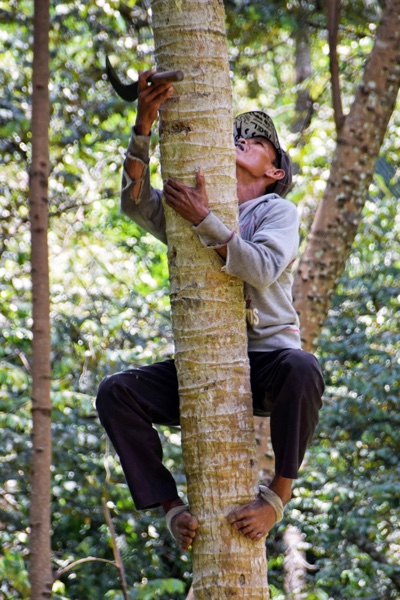P&G, BASF, Cargill and German development agency Deutsche Gesellschaft für Internationale Zusammenarbeit have partnered to help establish a sustainable coconut oil supply chain in the Philippines and Indonesia – the world’s largest producers of coconuts and exporters of coconut-based products.
The majority of coconut farmers in these two countries are smallholders and tenants, often working on farms of less than four hectares, with minimal organisation or involvement in farmer groups or co-ops.
As a result, some of the key issues that manifest include: little or no economies of scale, lack of financing and training, and a rigid supply chain.

Farmers often have to rely on middlemen, while inefficient and unsustainable agricultural practices are widespread.
Support on the ground
To help combat the issues faced, the companies plan to grow the incomes of 3,300 smallholder farmers, by increasing the productivity of their farms through training on Good Agricultural Practices, intercropping and farm management skills.
Around 800 of these farmers will receive extra training on the Sustainable Agriculture Network (SAN) standards so they can apply for Rainforest Alliance certification.
They also hope to establish a ‘chain of custody’ for certified material to help increase supply chain transparency.
Sustainability driver
Transparency in our supply chain helps drive the sustainability of our coconut oil supply
Jack Ryan, Vice President P&G Chemicals/Flavour & Fragrances, said: “We believe that transparency in our supply chain helps drive the sustainability of our coconut oil supply.
“Our SCNO partnership will lead to better practices for our industry, and improved lives of the smallholders in our supply chain.”
Cargill produces crude and refined oil, which is used by P&G and BASF for ingredients in home, personal care, nutrition and health products.
Efren Barlisan, General Manager, Cargill Grain and Oilseed Supply Chain, Philippines, added: “In the Philippines, we have been working with our partners since 2011 to improve the livelihood of thousands of smallholder coconut farmers and spearhead a supply chain of sustainable coconut oil.
“This project is our continued commitment to train more farmers in the Philippines, expand our reach to train farmers in Indonesia and further advance the supply of sustainable coconut oil in the world.”

